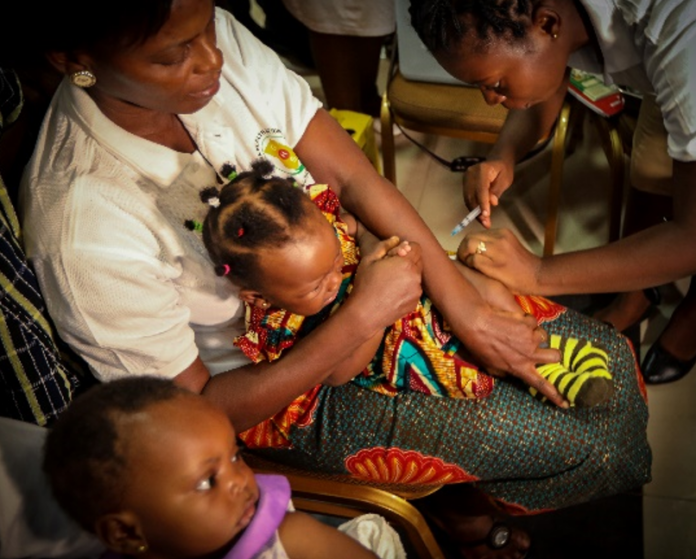by Nikitha Kamath
Known to be deadly at times, malaria is an infectious disease that is more common in countries with tropical climates. This mosquito-borne disease caused by parasites has led to the death of more than 400,000 people annually, with this number comprising largely of children under the age of 5 in Africa. The inevitability of the disease and the lack of resources to give patients immediate care are some of the reasons why Africans fear malaria as life-threatening. In the town of Migowi, for instance, the five-month rainy season brings about stagnant puddles which are the perfect breeding grounds for mosquitoes. Additionally, villages like Tomali are about a two-hour bike ride away from health clinics, which results in a severe delay in treatment. To add to these adverse circumstances, a vaccine for malaria was unavailable up until now.
Recently, a pilot program has been implemented in three African nations—Malawi, Kenya and Ghana—where babies are being treated with the new vaccine in order to test its effectiveness. This vaccine, which took close to three decades of research prior to development, works against the most common and deadly of the five parasite species that cause malaria. However, this vaccine is only about 40% effective in comparison to other well established vaccines. In spite of this statistic, parents have jumped at this opportunity to potentially help their children from being susceptible to malaria. Sharing her thoughts with The New York Times, Esther Gonjani, mother of a seven-month-old said, “They explained it wasn’t perfect, but I feel secure it will relieve the pain.”
Since treating malaria keeps local health workers busy during the rainy season, they are excited at the notion of their burden being reduced, if the vaccine is successful. They caution, however, that the vaccine is not intended to replace antimalarial drugs or insecticide-treated bed nets that people utilize on a daily basis. “We even take our evening meals inside the net to avoid mosquitoes,” said resident Doriga Ephrem, indicating the extent of precaution taken. With the implementation of this vaccine, scientists have also begun their search for more next-generation alternatives. According to experts, it is too early to gauge how well the vaccine is working in these nations. Nonetheless, the new malaria vaccine has brought optimism to several thousand families in Africa who look forward to a malaria-free future.

